Interview questions submitted from PD Dr. Rainer Klement
Department of Radiation Oncology
Leopoldina Hospital Schweinfurt
Dear Kingsley,
Your book “Healing the Wounded Mind” is a masterful description of the current state of human consciousness in modern societies. Since at least the Covid-19 crisis, many facets of what you refer to as the “wounded mind” should have become fully evident for everybody. Can you briefly explain to readers what the “wounded mind” is?
A ‘wounded mind’ is one that has lost contact with its inherent sense of the underlying unity behind existence and the interconnectedness and sacredness of all things. Modernity has given the western world the perspective that anything that is important lays external to us. In other words, we are just flesh and bone and bits of matter to be modified and tampered with. The attitude of the ‘modern mindset’ to the external world has largely been one of hostility – we have been conquering the external world for the greater part of recent history, instead of mastering our own inner nature. This hostile attitude ignores the reality that all life is interdependent. Our minds, in reaching outwards, have become splintered and fragmented; and in this, they have become ‘wounded.‘ And this woundedness is felt through a sense of alienation, separation, anxiety, uncertainty, restlessness, and even fear. Sometimes it even goes as far as to make a person adopt a ‘victim consciousness.’ In the last several years especially, this sense of social separation, a breakdown in human relations and bonds, a failure in trust and interconnectedness, and more, has all been exacerbated by the actions of governmental bodies acting as top-down dictatorial entities that only further triggers the individual/collective manifestations of a ‘wounded mind.’
How does the wounded mind affect our physical health and wellbeing?
Because the wounded mind is based on a splintering, a perspective of fragmentation, this is also then how it views the world it/we live within. Again, this is a perception that exteriorizes everything, and sees things in a linear, mechanical fashion. In this, health is about isolating symptoms and treating these rather than a more integrated approach. The wounded mind automatically, and largely unconsciously, projects our inner chatter – that is, our fears, anxieties, and insecurities – upon the exterior world. Of course, whatever we project externally eventually becomes our sense of reality. The wounded mind also clings desperately to what it feels are ‘securities,‘ such as beliefs, cultural references, and socially conditioned norms and attitudes, that then become like a personal dogma. The writer Doris Lessing referred to this as ‘The prisons we choose to live inside.‘ And within these psychological prisons many people, as well as the institutions of the modern world, have rejected the wisdom of sages, mystics, philosophers, and even the voices of creative artists. They prefer instead the superficial trappings, entertainments, and technological distractions of the consumerist marketplace. Only a large body of people with ‘wounded minds’ can become so influenced by political propaganda, consumerist advertising, and social management. Mass psychosis is only possible through a collective mindset that has become alienated from a transcendental source. In this state we are prisoners to the impulses that steer our unconscious.
The wounded mind ends up divorcing the human being from their innate, essential self. The world requires healed, integrated, and balanced people; for that which we lack in ourselves we shall always find lacking in the world outside. If we are not happy within ourselves, the world will not appear a happy place to us. The human project, if we wish to call it that, can never be ‘completed’ – it is an eternal quest to always be becoming. The wounded mind does not understand this need for seeking a ‘becoming‘ – an integration of self and life – as it is fundamentally based upon a perception of fragmentation.
Is there a chance to heal the wounded mind?
There is always a chance, an opportunity, for healing and betterment. This is all part of the resilience and adaptability of the human species. In large part, this is a question of perception.
Modern life also tries to eradicate, or at least hide, all sense of enigma. Yet it is precisely these enigmas that make our lives rich in wonder and awe. To attempt to abolish them is an act of great ignorance and hubris. Mystery and the mysterious must be allowed a space to thrive and enthral us. It is this sense of mystery that keeps us curious, and curiosity is one of our driving, motivating forces. In essence, the wounded mind needs to be reminded of the sublimity of life and the sacredness of an interrelated web of existence. The wounded mind needs to find a correspondence within also – a contact with a rich and profound inner world (as well as, technically speaking, an integration of left-right brain hemispheric functioning). And this corresponds with integrating our lives between the inner and outer worlds. The wounded mind fears being detected and recognized. We need to optimize our lives by raising our perspective and understanding. We must bring our inner world into the arena of the physical, material world. Both realms must participate and be in congruence. In order to achieve genuine solutions, each of us must be prepared to change and transform from within, and not just by changing our ideas. We cannot live by the conventions of society alone or from the impacts of our everyday lives. We need sustenance from the source that is beyond all social institutions, and from beyond physical life itself. It is up to each one of us to make enough energy available for self-awareness to break away from a state of unconsciousness. With sufficient energy of awareness, we can break away from those chains – both self-imposed and socially conditioned – that hold us back from genuine freedom from external programming and influences.
The first step to be freed from the psychosis of the wounded mind is to recognize and identify the shadows of our unconscious that then manifest as external dominant forces. To heal the wounded mind, we need to know and accept the presence of the oppressive forces. As long as the majority of people expect all problems to be solved outside of themselves our societies will continue to be dominated by unruly forces. Our human freedom from these forces depends upon people willing to assume the responsibility of consciousness, and to project this inner reality upon an external environment. That is the great perennial task: to become what we have always been, and to show others the way through our own individual presence and behaviour. Through our deliberate and conscious presence, we can assist others to become what they have always been also. When we are finally able to heal ourselves from within then, and only then, can we heal others and the world without. Everything begins from the individual.
You often write that humanity as a species is now approaching a tipping point in its evolution. Can you briefly explain what you are referring to here in particular and what’s the evidence for this claim?
The philosopher Paul Brunton said more than seventy years ago: ‘The real tragedy of our time lies not so much in the unprecedented external events themselves as in the unprecedented ethical destitution and spiritual infirmity which they glaringly reveal.’ This situation has not altered much concerning the ‘spiritual infirmity’ of our times; yet the ‘unprecedented external events’ are becoming more of a tragedy for they have the potential to tip our human species into different future timelines. Due to the rapid advancement of our technologies, we are advancing towards a possible tipping point or even a precipice. As a new burgeoning multi-polar world takes shape, we are on the cusp of a range of possibilities that include asymmetric warfare, totalitarian control, A.I. advancement and its consequences, civil war, financial and economic collapse, anarchy, revolution, and more. Are we not witnessing the outer manifestations of a wounded mind in operation? The internal fragmentation within the human species is being manifested within its physical reality. We are both splintered without as well as within, and our technologies are likely to both reflect this state of affairs as well as emphasize it further. As in the parable of the person who built their house on sand, we are raising our edifices for the future upon an insolvent foundation – and we are that foundation. We have not matured enough as a species to be coming into contact with the technological potentials we have at our fingertips. The tipping point will be between our inner development and growth as opposed to the speed (and possible wrath) of our outer technologies as well as the mindsets of those small groups of players who have a vested interest in controlling such technologies. We are like children playing in the sandpit with loaded guns. I do feel that humanity is now being compelled to awaken to this situation, and rapidly, or else we may become embroiled in a future where we shall be paying off the debt of our mistakes.
What would be your favorite 5-10 points for living a healthy fulfilling life?
- Treat yourself well. Don’t be hard on yourself or beat yourself up. We all have our flaws – it’s what makes us human.
- Don’t feel pressured by the expectations of others. Live your life according to your own truths.
- Find time to relax and to step back from the routine rhythms of your everyday life. Find those moments for reflection, for quietness, and dedicate some time for cultivating your personal space.
- Don’t take things personally. Each person projects outwards from their own internal state, whether they are conscious of it or not. What others say about you is more a reflection of them than it is of you.
- Don’t take things too seriously. And laugh again.
- Don’t judge things by a measurement of value. Don’t try to evaluate the ‘cost’ of things in life, for the real things of meaning are beyond such quantifiable value.
- Find those things in life which give you a sense of meaning and purpose. It doesn’t matter how big or small these are. Size does not matter when it comes to those aspects which bring you an inner sense of meaning and purpose.
- Try to love something. If you find loving humans difficult to do, then start by loving plants, animals – anything. Just practice some love, without expecting anything in return.
- Know that being is more important than having.
- Know truly within yourself that, in the end, everything is going to be okay – absolutely everything – for there is no end of anything.
- Remember that when you are asked a question such as ‘What would be your favorite 5-10 points for living a healthy fulfilling life,’ that it’s okay to give a number 11, because it’s fine to give that little extra; it’s okay to go beyond expectations and to do a little bit more than what is asked of you – because you are an unpredictable and wonderfully creative being, who sometimes likes to bend the rules a little bit 😊

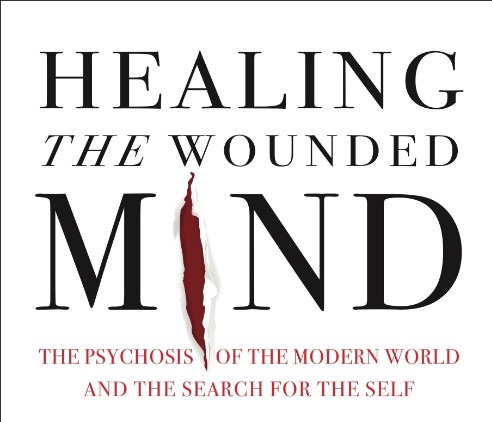
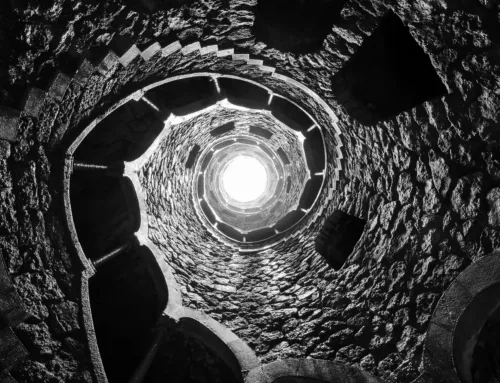

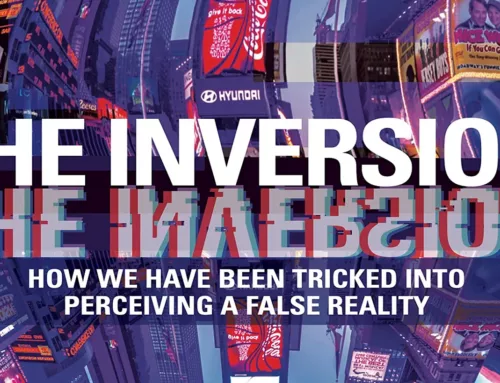
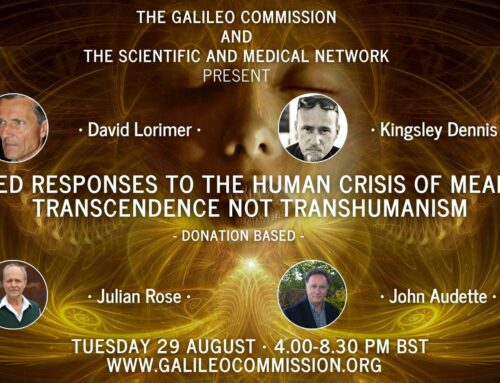
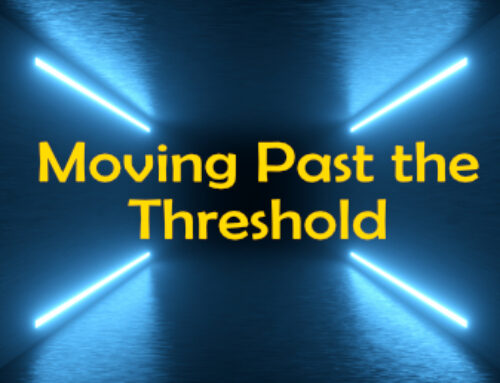
Leave A Comment
You must be logged in to post a comment.